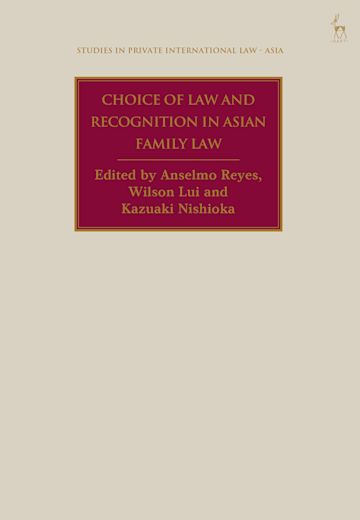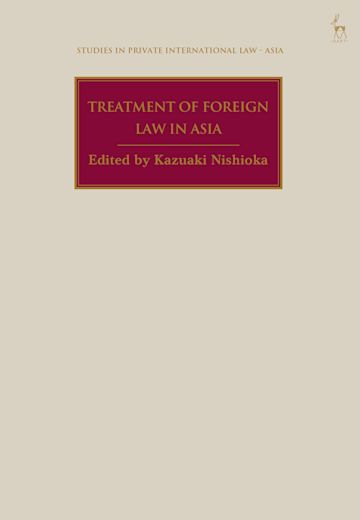Views
Private International Law, Labour conditions of Hungarian truck drivers, and beyond
Written by Veerle Van Den Eeckhout
On 23 November 2018 the Dutch Supreme Court referred a question for preliminary ruling to the CJEU in a case with regard to labour conditions of Hungarian truck drivers, particularly with regard to the Posting of Workers Directive, 96/71/EC (see here for the Dutch version, see here for the decision of the same day).
The preliminary question will certainly attract the attention of many who have a particular interest in the specific theme of labour conditions of mobile East European workers – a theme in which rules of Private International Law matter.
“The Nature and Enforcement of Choice of Law Agreements” (2018) 14 Journal of Private International Law 500-531
This blog post presents a condensed version of Dr Mukarrum Ahmed’s (Lancaster University) article in the December 2018 issue of the Journal of Private International Law. The blog post includes specific references to the actual journal article to enable the reader to branch off into the detailed discussion. The journal article is a companion publication to the author’s recent book titled The Nature and Enforcement of Choice of Court Agreements: A Comparative Study (Oxford, Hart Publishing 2017).
The article examines the fundamental juridical nature, classification and enforcement of choice of law agreements in international commercial contracts. At the outset, it is observed that choice of law considerations are relegated to a secondary position in international civil and commercial litigation before the English courts as compared to international jurisdictional and procedural issues. (See pages 501-503 of the article) Significantly, the inherent dialectic between the substantive law paradigm and the internationalist paradigm of party autonomy is harnessed to provide us with the necessary analytical framework to examine the various conceptions of such agreements and aid us in determining the most appropriate classification of a choice of law agreement. (See pages 504-508 of the article and Ralf Michaels, ‘Party Autonomy in Private International Law – A New Paradigm without a Solid Foundation?’ (2013) 15 Japanese Yearbook of Private International Law 282) In binary terms, we are offered a choice between choice of law agreements as mere “factual” agreements on the one hand or as promises on the other. However, a more integrated and sophisticated understanding of the emerging transnationalist paradigm of party autonomy will guide us towards a conception of choice of law agreements as contracts, albeit contracts that do not give rise to promises inter partes. This coherent understanding of both the law of contract and choice of law has significant ramifications for the enforcement of choice of law agreements. It is argued that the agreement of the parties on choice of law will be successful in contracting out of the default choice of law norms of the forum and selecting the applicable law but cannot be enforced by an action for “breach” of contract.
It is argued that the emerging transnationalist paradigm of party autonomy supports a conception of choice of law agreements which borrows from both the internationalist and substantive law paradigms of party autonomy but cannot be comprehensively justified by either. This assimilated and coherent understanding of choice of law and the law of contract has led to the conclusion that the choice of law clause is a procedural contract but a contract nonetheless. (See Jürgen Basedow, The Law of Open Societies: Private Ordering and Public Regulation in the Conflict of Laws (Brill Nijhoff 2015) 145 and Maria Hook, The Choice of Law Contract (Oxford, Hart Publishing 2016) Chapter 2)
Professor Briggs’ promissory analysis of choice of law agreements is a seminal contribution to legal scholarship. (See Adrian Briggs, Agreements on Jurisdiction and Choice of Law (OUP 2008) Chapter 11) However, it is unlikely that the parallel existence of choice of law agreements as privately enforceable agreements will attract the attention of the CJEU and the EU legislature. The common law judicial authority coupled with the preponderance of opposing academic opinion has meant that the conventional “declaratory” classification of choice of law agreements has prevailed over the “promissory” approach. (See pages 508-517 of the article; Ace Insurance v Moose Enterprise Pty Ltd [2009] NSWSC 724 (Brereton J); Navig8 Pte Ltd v Al-Riyadh Co for Vegetable Oil Industry (The Lucky Lady) [2013] EWHC 328 (Comm), [2013] 2 Lloyd’s Rep 104, [2013] 2 CLC 461 (Andrew Smith J)) In assessing the relevance and significance of attributing an obligation to adhere to the chosen law in a choice of law agreement, the internationalist paradigm’s understanding of the fundamental nature of private international law rules and their inherent function has helped develop the counterargument.
If the choice of law regime of the forum is conceptualised as a set of secondary rules for the allocation of regulatory authority, the descriptive, normative and interpretive narrative of the promissory perspective loses its perceived dominance and coherence as it fails to yield a complete and satisfactory justification for what we really understand by those rules. In the mantle of secondary power conferring rules as opposed to primary conduct regulating rules, choice of law rules perform a very significant public function of allocating regulatory authority. From this perspective, it is misplaced and misconceived to interpret choice of law clauses as promissory in essence. The promissory justification does not adequately account for the authorisation of party autonomy by the choice of law rules of the forum, the supervening application of the laws of the forum and other states and ultimate forum control. (See pages 517-524 of the article) Moreover, the pragmatic attractiveness of anti-suit injunctions and claims for damages for breach of choice of law agreements may be unsound in principle from the standpoint of a truly multilateral conception of private international law based on mutual trust or a strong notion of comity. An international private international law will always seek to promote civil judicial cooperation between legal systems rather than encourage the clash of sovereign legal orders by interfering with the jurisdiction, judgments and choice of law apparatus of foreign courts. (See pages 524-529 of the article)
To reiterate, the more reconciled transnationalist paradigm of party autonomy strikes a balance between the competing demands of the internationalist and the substantive law paradigms. It is argued that a conception of a choice of law agreement as a contract, albeit one that does not give rise to any promises inter partes provides an appropriate solution.
On the one hand, the choice of law agreement is a legally binding contract as opposed to a mere “factual” agreement. On the other hand, the function of this agreement is not to regulate private law rights and obligations inter partes: it is to contract out of the forum’s default choice of law norms and to select the applicable law. Such a contract will not contradict the intrinsic logic of choice of law rules because the international allocative function remains paramount and is not compromised in any way by promises inter partes. The fact that the choice of law agreement is a contract which only gives rise to procedural consequences does not mean that it is not a contract per se. (See pages 530-531 of the article)
The saga of the Greek State bonds and their haircut: Hellas triumphans in Luxemburg. Really?
By Prof. Dr. Peter Mankowski, University of Hamburg
The Greek State financial crisis has sent waves of political turmoil throughout the Eurozone and is certainly going to continue. It has provided much enrichment for International Procedural Law, yet not for the creditors of Greek State bonds. ‘Haircut’ has become an all too familiar notion and part of the Common Book of Prayers of State bonds. Some creditors, particularly from Germany and Austria, were not content with having their hair cut involuntarily and put it to the judicial test. Greece has thrown every hurdle in their way which she could possibly muster: service, immunity, lack of international jurisdiction. The service issue was sorted out by the CJEU in Fahnenbrock (Joined Cases C-226/13 et al., ECLI:EU:C:2015:383), already back in 2015. The German BGH and the Austrian OGH took fairly different approaches, the former granting immunity to Greece because of the haircut, the latter proceeding towards examining the heads of international jurisdiction under the Brussels Ibis Regulation. Quite consequently, the OGH referred some question concerning Art. 7 (1) Brussels Ibis Regulation to the CJEU. Read more
News
Out Now: Choice of Law and Recognition in Asian Family Law
A book edited by Anselmo Reyes, Wilson Lui, and Kazuaki Nishioka on Choice of Law and Recognition in Asian Family Law has just been published in the Hart Studies in Private International Law -Asia.

The blurb read as follows:
This thematic volume in the series Studies in Private International Law – Asia outlines the general choice of law and recognition rules relating to family matters of 15 Asian jurisdictions: Mainland China, Hong Kong, Taiwan, Japan, South Korea, Singapore, Malaysia, Vietnam, Cambodia, Myanmar, the Philippines, Indonesia, Thailand, Sri Lanka and India. The book examines pressing questions and proposes ways in which their systems may be reformed. A concluding chapter considers the extent to which Asian cross-border family law systems can and should be harmonised.
The book provides a comprehensive analysis of cross-border family law challenges, including child surrogacy, child abduction, the recognition of same-sex unions, the recovery of maintenance, and the regulation of intercountry adoption. These are among the matters now testing Asian institutions of private international law and acting as forces for their modernisation.
With contributions by leading Asian private international law experts, the book proposes necessary reforms for each of the jurisdictions analysed as well as for Asia as a whole.
Out Now: Treatment of Foreign Law in Asia
A book edited by Kazuaki Nishioka on Treatment of Foreign Law in Asia has just been published in the Hart Studies in Private International Law -Asia.

The blurb read as follows:
How do Asian courts ascertain, interpret, and apply a foreign law as the law governing the merits of the case? What should judges do if parties do not raise or disagree on the content of foreign law? This thematic volume in the Studies in Private International Law – Asia series analyses the treatment of foreign law before judicial authorities, that is, how the courts of Asian states deal with the proof of foreign law in court litigation involving cross-border elements.
The individual chapters cover 15 Asian jurisdictions: Mainland China, Hong Kong, Taiwan, Japan, South Korea, Singapore, Malaysia, Vietnam, Cambodia, Myanmar, the Philippines, Indonesia, Thailand, Sri Lanka, and India.
The Introduction and Conclusion examine similarities and differences in the approaches taken by the 15 Asian states with a view to assessing the extent to which those approaches are consistent or different from each other. The book also puts forward suggestions for harmonising differing approaches, especially between Asian common law and civil law states.
The book is a one-stop reference guide on the treatment of foreign law in Asia and will be indispensable to judges, practitioners, and scholars not just in Asia, but worldwide.
Out Now: Internationales Privat- und Prozessrecht in Lateinamerika by Jürgen Samtleben
Jürgen Samtleben just published a collection of his work on the PIL of Latin America; he kindly shared the following announcement with us:
Jürgen Samtleben has authored numerous articles over the years on private international law and international civil procedure in Latin America. These contributions have now been updated and systematically organized into a single volume, thereby offering a unique overview of the conflict of laws in Latin American countries. The collection of articles in German, Spanish and English is supplemented by a comprehensive volume containing the relevant statutory materials in their original language as well as in German translation.
The indices of volume I (‘Rechtsordnungen’) and volume II (‘Gesetzestexte’) can be found here and here. More information is available here.


